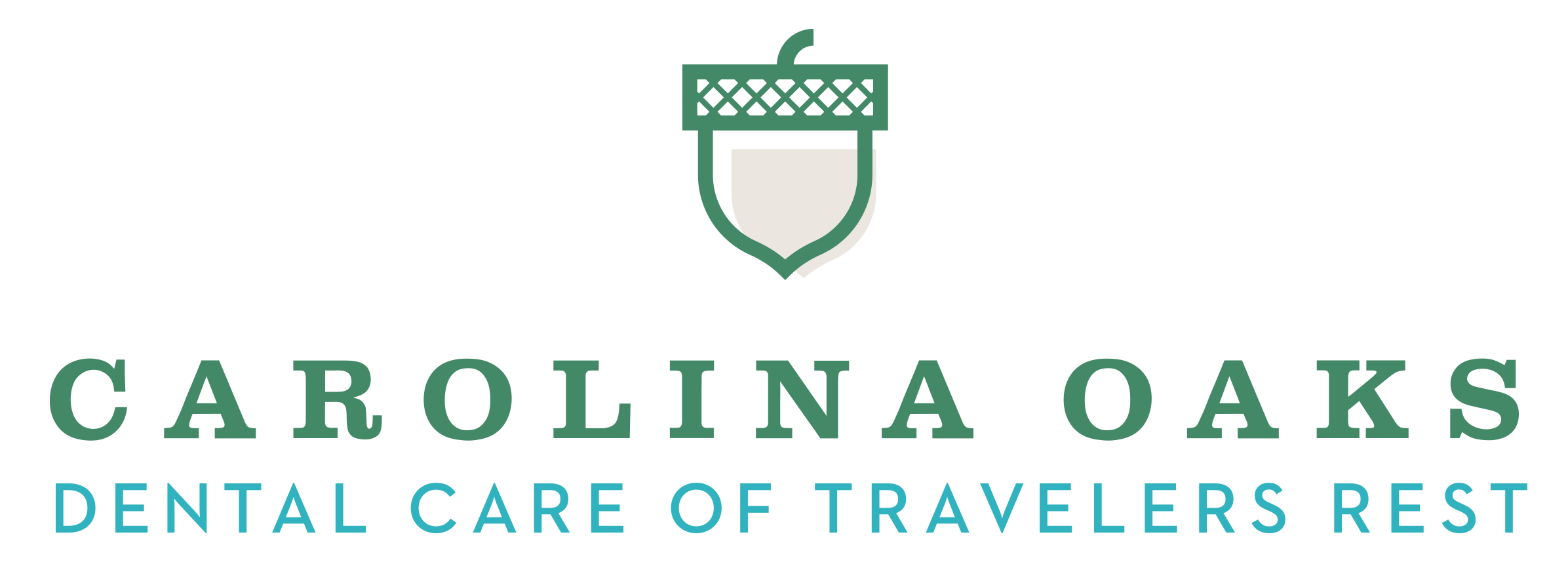Dental insurance is rarely linked to health insurance, so it falls on us to enroll in dental programs. This begs the question: do I need it? And if so, how much? The answer depends on your health, your family, and what you can predict may happen in your future.
At Carolina Oaks Dental Care of Travelers Rest, we get a lot of questions from patients about dental insurance. We hope these frequently asked questions (FAQs) can help you understand your options and the circumstances that should influence your enrollment decisions.
Do you have questions for Carolina Oaks Dental Care about your dental care and coverage? Contact our Travelers Rest, SC dental practice at 864-836-8416 to talk to our staff.
Do I need dental insurance?
While dental care costs can be considerable, there are cases in which it is more affordable not to enroll in dental insurance.
You may not need dental insurance if:
- you are a single person,
- you are in a good state of oral health, and
- you see a dentist regularly for preventive treatments and dental cleanings.
If you are only likely to be paying for routine, six-month preventive visits, plus the occasional cavity filling—it may be wise for you not to enroll at this time. Compare the costs of these visits to insurance costs, to know for sure.
However, there is always the possibility of accidental dental injury. The most common cause of knocked-out teeth is from accidents that happen when playing sports. If you engage in sports, motorcycling, or other activities that could lead to dental trauma, ask your medical insurance if they cover those sorts of accidents before you deny yourself dental insurance. You don’t want to wind up losing a tooth and having to pay for a dental implant on your own!
What does dental insurance cover?
The amount of money you will have to pay out of pocket varies quite a bit for dental treatments. Preventive treatments, such as routine six-month visits, exams, and fluoride treatments get the most coverage. Often you pay nothing at all for these services.
For basic dental restorations, such as fillings, root canals, and periodontal therapies, insurance will cover the bulk of the cost, but patients usually pay about 20-30%. More advanced restorations you are not likely to need too frequently, such as bridges, crowns, and dental implants, usually require a greater patient contribution, often as much as 60%.
Most plans have a basic provision for orthodontia, but patient costs are significant. If you have children who may need braces in the future, this may be a deciding factor in the type of plan that you choose.
How much coverage should I consider?
Most dental insurance plans offer two levels of dental insurance, basic and extended. You pay more for the latter, obviously, but in some cases you will save money with greater coverage.
You may benefit from the extended plans, based on:
- The Size of Your Family – Even with excellent preventive care, the need for occasional fillings or orthodontia can lead to heavy out-of-pocket costs if you have multiple children. If your family is large, or if you plan for it to be one day(!), you may want to look carefully at the differences between basic and extended coverage before making a choice.
- Your Dental History and Family Dental History – Look at the type of dental work you have needed in the past. Are you one of the lucky few who never gets cavities, or are your teeth prone to decay? Also consider your parents’ dental health. Many dental conditions have a genetic link. If your parents needed a lot of dental work or periodontal treatments, (or lost their teeth), you may want to play it safe with an extended package.
- Your Overall Health – Dental and overall health are more connected than people realize. Chronic health concerns frequently have a negative impact on your teeth and gums. For example, diabetes, acid reflux, and many other health conditions often go hand-in-hand with oral health problems. Pregnancy and menopause can require more frequent dental visits, as gingivitis and gum disease frequently begin during times of hormonal changes. If you take medications regularly, you may develop dry mouth, which contributes to tooth decay.
What are DHMOs and PPOs?
A DHMO is a dental plan that only allows you to choose from a small list of contracted dental providers. They are more affordable than other plans, but you will be more limited in the dentists you can choose from.
PPOs offer a wider network of dentists to choose from, and will even cover out-of-network providers, though at a different rate. You will definitely have more flexibility with a PPO, but monthly costs will be higher than those of DHMOs.
Learn More Before You Choose!
If you want to make sure the dental plan you select is right for your family, take the time to read about them carefully. As your employer to provide side-by-side comparisons of the plans they offer—they probably already have these ready for you, to help you with your decision. You can also find out more information on dental insurance sites that aim to inform, rather than sell. There is a wealth of information available online, once you start looking for it.
Do you have questions for Carolina Oaks Dental Care about your dental care and coverage? Contact our Travelers Rest, SC dental practice at 864-836-8416 to talk to our staff or make a dental appointment.



